Since childhood, I have always enjoyed markets and remember going to the Pyatt Street Market in Youngstown, Ohio, with my parents. I still recall the colors, sounds, and smells of fruit and vegetables for display there. We recently moved to Downtown St. Petersburg, Florida, and our condo is about two blocks from the Saturday Market that, even during this pandemic, is hopping on Saturday. There is nothing like a market to get a feel for the community you’re in.
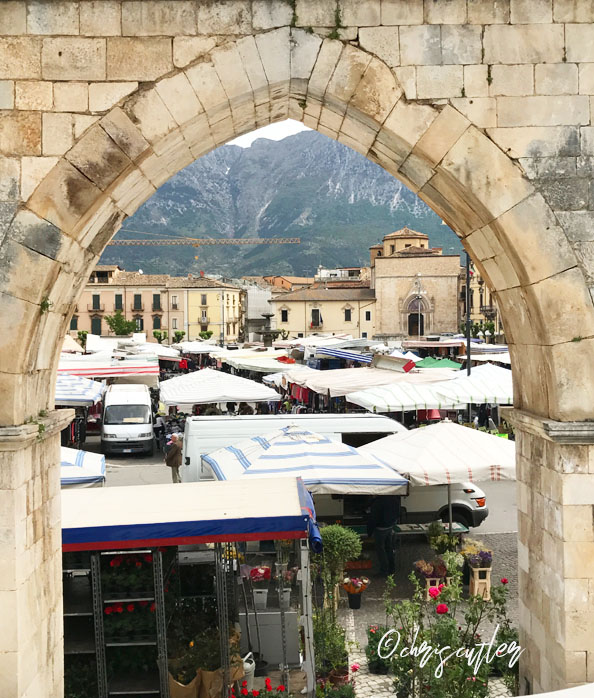
It follows, therefore, that I frequent the markets no matter which town I’m in. Shopping in the Italian markets is very different from shopping in markets in the States, though. Here are a couple of tips that you might want to know if you decide to head to Italy and go to one of the markets.
• Many Markets Are Not Open Daily.
While there are some daily markets in larger cities such as Rome, Florence, Venice, and Bologna, the smaller towns have a permanent market day. Florence’s Mercato Centrale is open daily, but in Sulmona, a smaller town in Abruzzo, market days are Wednesday and Saturday. Pratola Peligna, another Abruzzese town, has theirs on Friday. Bologna’s Mercato delle Erbe (food) is open daily except Sunday. It’s the same with many of the vendors in the city’s Mercato di Mezzo. The town’s largest market, which has (no food), is open only Friday and Saturday.
If you want to visit markets, check websites or regions or towns as they list market days and opening times.
• Different Markets. Different Products.

Weighing the old way in Sulmona 
Waiting to serve 
Serving porchetta in Sulmona 
Cutting prosciutto and cheese at Mercato Central 
Fresh fish market at Mercato di Mezzo 
Cheese at the Ballaró in Palermo
Sulmona, which holds its market in Piazza Garibaldi, has one of my favorite markets. It has everything—fresh produce, meats, cheeses, eggs, and fish; ready-to-eat porchetta and roast chicken; candies, olives, and sardines; jeans, golf shirts, and coats; curtains, towels, post, pans, and more.
I bought a chitarra at the Sulmona market so I could make pasta alla chitarra. I could have bought one in the States for $40-70, but the handmade one I bought there was only 10 euro.

Until the pandemic hit, Bologna had a monthly antiques market as well as a smaller version of it each Thursday. And, of course, we cannot forget that many towns hold Christmas markets during the holiday season.
• All Market Items Are Not Created Equal.
If you are shopping for clothing in the markets, realize that you may not be buying the best quality. Your best defense is to do your research before you buy anything in a market.
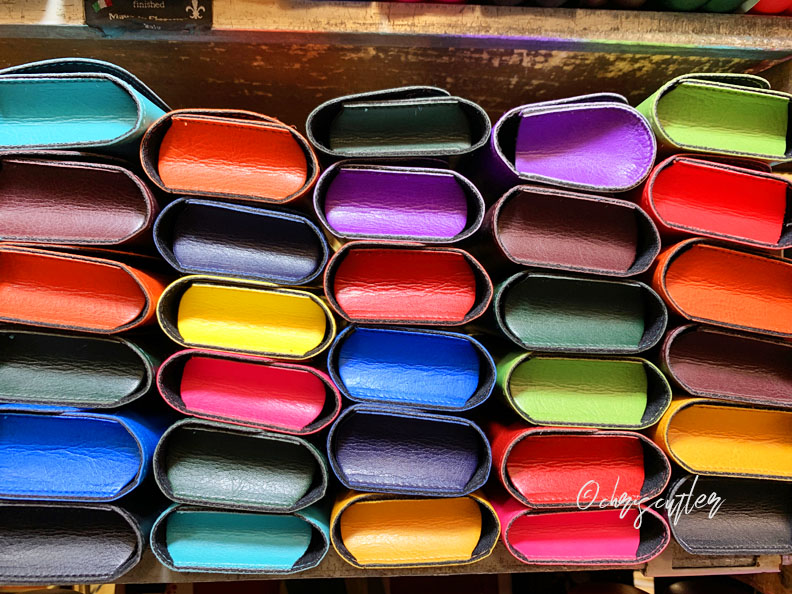
Many Americans go to Florence with the intention of buying leather goods believing everything at the market is real leather. There are many vendors who try to pass off vinyl for leather even in the San Lorenzo or Porcellino markets. How do you tell? Smell the item because real leather has a light smell while the fake stuff has a strong, chemical smell. Second, if you hold genuine leather in your hand, it warms up. If you hold fake leather, it will not.
Finally, if you’re still not sure, there are two tests you can perform. Rub a little water or saliva on the piece; if it’s real leather, it will absorb the liquid while fake leather will not. Second, hold a lighter or match to the item; real leather will resist burning while the fake will burn immediately.
If the vendor insists something was made in Italy, don’t necessarily believe it. Many times I’ve bought a scarf that that has a MADE IN ITALY tag on it knowing it is identical to scarves MADE IN SPAIN or MADE IN BELGIUM. While looking at scarves in Florence two years ago, I saw one identical to another I bought in the US. The vendor insisted his was a product of Italy, but mine from the US was from the PRC (aka China). I’ve also seen scarves that had the MADE IN ITALY tag ironed on top of the MADE IN PRC tag. I’m not saying everything in the markets is made in PRC, but you must beware.
If you like a 15-euro shirt in one stall, check other booths for better prices before you buy. If another vendor has the same shirt for 3 euro, check it out thoroughly before you buy. There’s a reason that one is five-times less than the other. Some of the vendors will mark tears and bad spots, but others will not.
• Prices Are Negotiable…To a Point.

Most vendors—unless they are from a brick-and-mortar store—will haggle a little on prices. Don’t expect them to go down 50%, but they might go down 10% or so. The food vendors, however, do not haggle. The price you see is what you pay.
• Do Not Touch The Produce.
Even before the pandemic, it was not acceptable to touch fruit or vegetables with bare hands at Italian markets. If you are at a produce market, let the vendor pick up you whatever you want to buy. NON TOCCARE means do not touch (or you’ll bear the wrath of the vendor). The same, by the way, is true at groceries. They provide a plastic glove for you to pick up whatever you want.

A friend didn’t heed that piece of advice picked up a tomato in the Mercato di Mezzo in Bologna. She sent the vendor into a tirade that stopped only when I had her buy said tomato.
• Cash is King at Markets.
Most market vendors do not accept credit cards. Actually, Italy is a mostly cash-based society, and except for big-ticket items, you’re better off paying cash most places. It’s always good to have a variety of money, including coins. I invited one vendor’s because I gave him a 5-euro bill to pay for 2-euro worth of produce. He wanted moneta, (coins), which I did not have, and he was not happy with my paper money.
• The Weekly Markets Are Social As Well As Shopping Events.

The women shop… 
…and the men talk
If you go to a market in a small town, notice that many of the shoppers are not wearing jeans and t-shirts. Women wear skirts or dressier slacks and tops while some of the men wear sport coats.
Also notice that while the women shop, the men get together and talk. My husband has a theory that the men always converse in odd-numbered groups of three or five. It’s usually true. If you see two men together, another one will often walk up and join in the fun.
The Last Word
I guess part of the reason I love markets is because they enable me to blend into the Italian way of life. If you go, plan to spend time just people watching. I guarantee you will enjoy it.

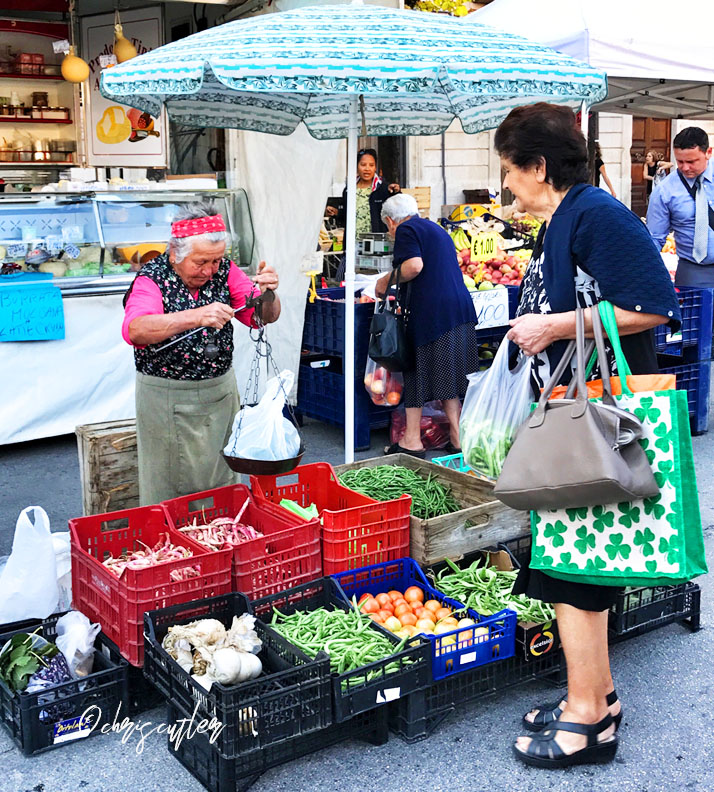

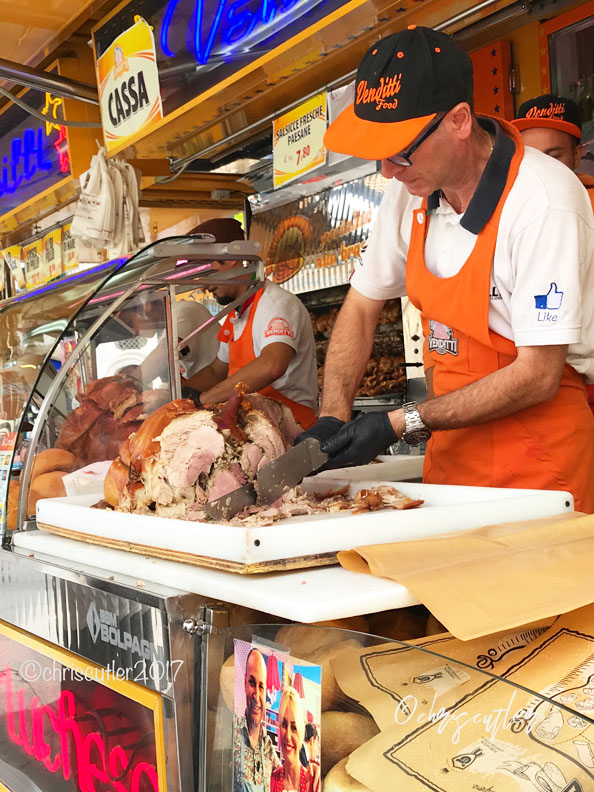

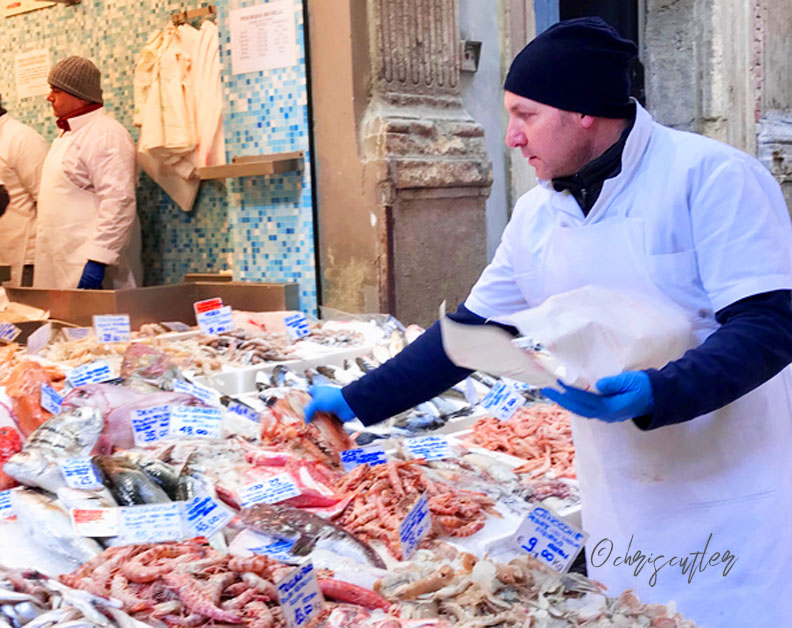
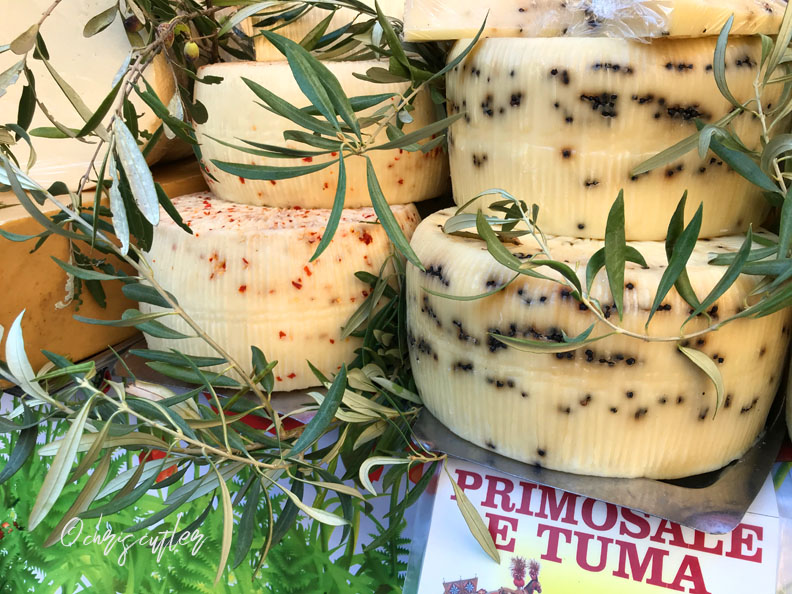
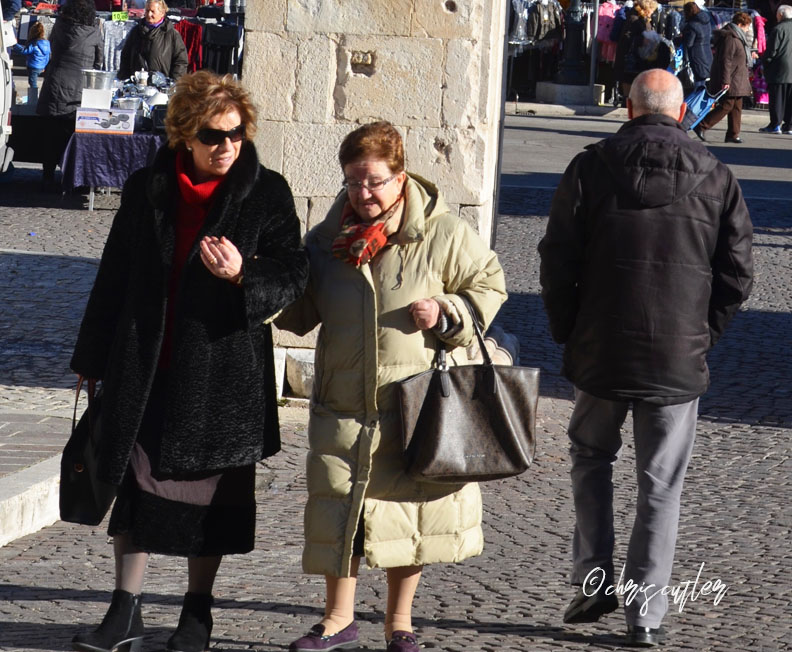
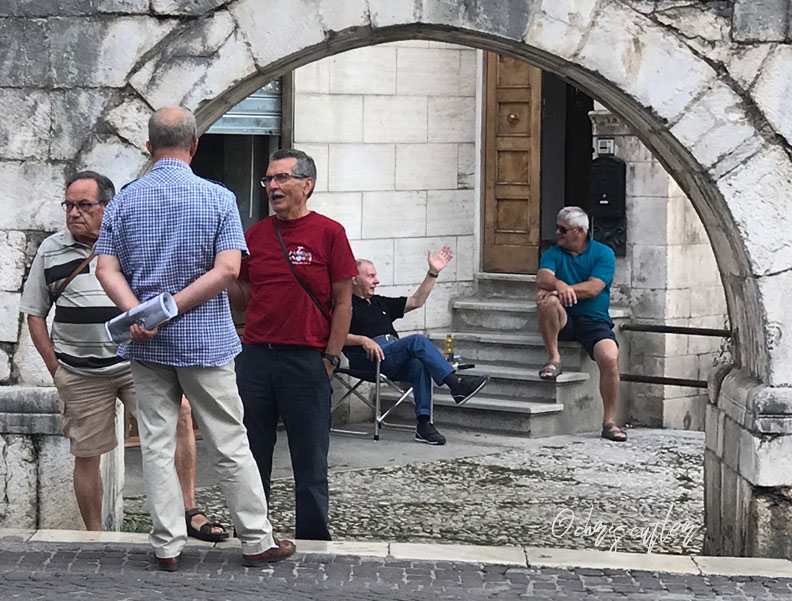

What a flood of memories reading Pyatt St Market brought! I loved that place and used to go there all the time with my grandfather. Seemed like he knew everyone… we were the only faction of our family to move to Ytown , everyone else was on farms in East Palestine, Negley, Columbiana and Leetonia. Thanks for reminding me of those childhood excursions!
Hi Maggie! So glad this article brought back memories.